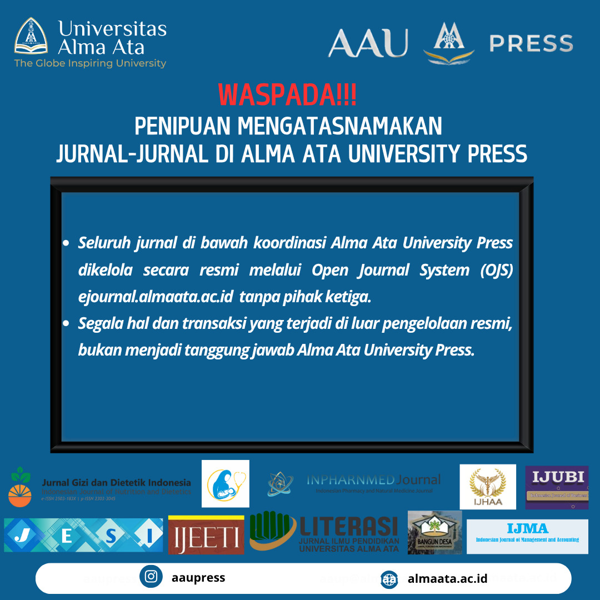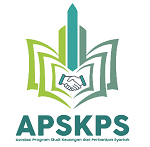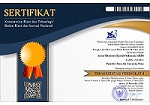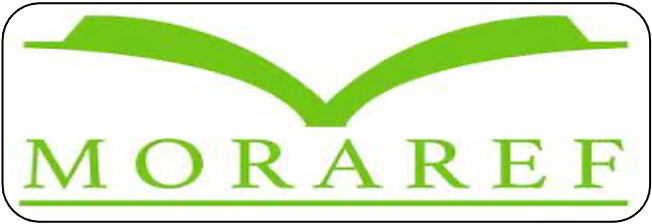JESI: Jurnal Ekonomi Syariah Indonesia is an academic journal published by the Department of Islamic Economics and Islamic Banking, Alma Ata University, in collaboration with the Indonesian Association of Islamic Economists (IAEI). The purpose of this journal is to discuss crucial topics in modern Islamic economics and finance. In addition, the aim of this journal is to provide relevant and applicable research for various researchers and professionals in the field of Islamic Economics and Finance. The scope of JESI: Jurnal Ekonomi Syariah Indonesia focuses on providing quantitative, qualitative, and mixed methods research in the field of Islamic Economics, particularly in the fields of Islamic Management, Islamic Accounting and Finance, Islamic Philanthropy, and Halal Studies. Reviewers will review each submitted paper. The review process uses a Double-blind Review, meaning the reviewer does not know the identity of the author, and the author does not know the identity of the reviewer. The review process uses a Double-blind Review, meaning the reviewer does not know the identity of the author, and the author does not know the identity of the reviewer.
JESI: Jurnal Ekonomi Syariah Indonesia has become a CrossRef Member since the year 2017. Therefore, all articles published by JESI: Jurnal Ekonomi Syariah Indonesiah will have unique DOI number. DOI: https://doi.org/10.21927/jesi.2023.13
e-ISSN: 2503-1872 (online); P-ISSN: 2089-3566 (print). |
|  |














